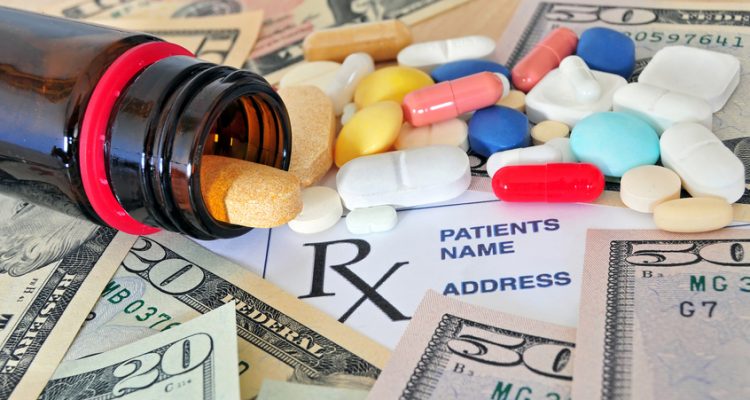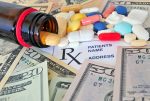
The fastest route to your heart may be through your doctor’s stomach, according to a recently published study. The researchers looked at potential ties between drug company-purchased meals and the prescribing habits of doctors who partook. Among the four brand-name drugs that were examined, each showed increased rates of being prescribed among doctors who ate sponsored meals compared to those who didn’t.
Quick Background
Drug company sales reps tread a thin line between informing doctors and marketing to them. On the one hand, doctors cannot prescribe something they don’t know about and company-sponsored meals provide a way to inform physicians about drugs that are available and to share clinical research or provide free samples. On the other hand, this can lead to doctors being more inclined to prescribe medications that are more expensive than potential alternatives, can create integrity issues (or perceptions thereof), and otherwise interfere with an objective assessment of what benefits a patient most. There is also the risk of doctors being given inaccurate of otherwise misleading information about the drugs being promoted.
There has been much research done on the matter with results tending to show either mixed results from pharmaceutical company gifts, to negative impacts on patients, to having no impacts on patients or doctor prescribing behavior, to behavioral changes only being seen past certain monetary thresholds ($2,000 in one Harvard study). This recent study differs from others in that it examines specific brand-name drugs and direct links between promotion and prescribing.
Meals and Prescription Study: Summary
- A total of 279, 669 doctors and 63,524 drug company payments were covered for the study
- Doctor prescription data was taken from Medicare part D prescriptions
- Drug company payments and the promoted drugs they were for was taken from FDA reporting disclosures
- Of the payments, 95% (~60,347) were for meals, such as in the form of sponsored lunch at a conference or meeting or food drop-offs by drug representatives
- The average value of the food payments was $20
- The prescribing rates of four top-selling brand-name drugs were examined: the statin Crestor, the beta blocker Bystolic, the ACE inhibitor Benicar, and the SSRI Pristiq
- All four drugs have more affordable generic alternatives that are proven to be of equivalent effectiveness
- Among all four drugs, prescribing rates were significantly higher among doctors who had at least one sponsored meal, with the rates going up the more days in which a sponsored meal was given
- The effect was greatest when meals costing over $20 were provided
Breaking Things Down
The study definitely shows an association between sponsored meals and the brand-name drug prescriptions that the benefiting doctors give out. Broadly speaking, there are three possible reasons that could explain these findings; the first would mean a positive effect for patients, the second would mean little for patients, and the third would mean a negative effect for patients.
- The prescription influence is stemming from the accompanying information such as new evidence, clinical guidelines, or free samples
- The physician already prefers the brand-name drugs in question and this preference leads them to partake of the sponsored meals rather than the other way around
- The meals are changing physician prescribing behavior as a result of promotional and marketing influence
The study design is not set up to address which of these might be the case. There is also a fourth possibility where the meals and prescribing habits are not actually related or are being influenced by something else that wasn’t being measured. The authors are careful to note that their findings do not indicate a cause-effect relationship, only correlations.
What This Means
This study adds to the existing body of knowledge about how drug company marketing influences patients and doctors. Its findings are consistent with other, smaller studies that link sponsored meals with increased use of promoted brand-name drugs and requests for them to be stocked in hospital pharmacies. The findings also suggest that influence could be obtained even with something as minor as a single $20 meal.
However, it is important to recognize that the doctors who accepted sponsored meals are still a vast minority of all the physicians covered in the research. Across all four brand-name drugs, 88% (Crestor), 97% (Bystolic), 93% (Benicar), and 98% (Prisiq) of prescribing doctors had zero days of sponsored meals. While the findings do suggest some association between drug marketing and doctor prescriptions, some comfort can be taken in that an overwhelming majority of prescribers are maintaining enough distance to be exempt.
Bottom Line
- More drug company-sponsored meals is associated with partaking doctors giving more prescriptions for the brand-name drug being promoted than doctors who don’t take the food
- Whether this is good or bad, or what specific interactions are behind this association, is not determined
- Most doctors do not partake in drug company-sponsored meals
Sources for Today’s Article:
DeJong, C., “Pharmaceutical Industry-Sponsored Meals and Physician Prescribing Patterns for Medicare Beneficiaries,” JAMA Internal Medicine, 2016; 10.1001/jamainternmed.2016.2765
Ornstein, C., “Even a Small Meal for a Doctor Can Tip the Balance for a Brand-Name Drug,” NPR web site, June 21, 2016; http://www.npr.org/sections/health-shots/2016/06/21/482922838/even-a-small-meal-for-a-doctor-can-tip-the-balance-for-a-brand-name-drug, last accessed June 22, 2016.














